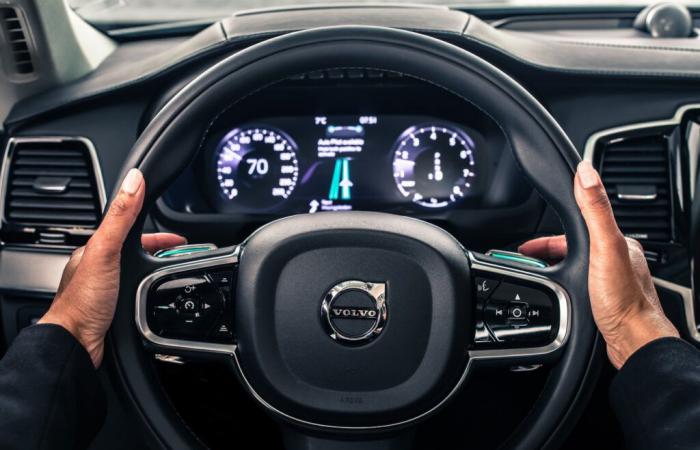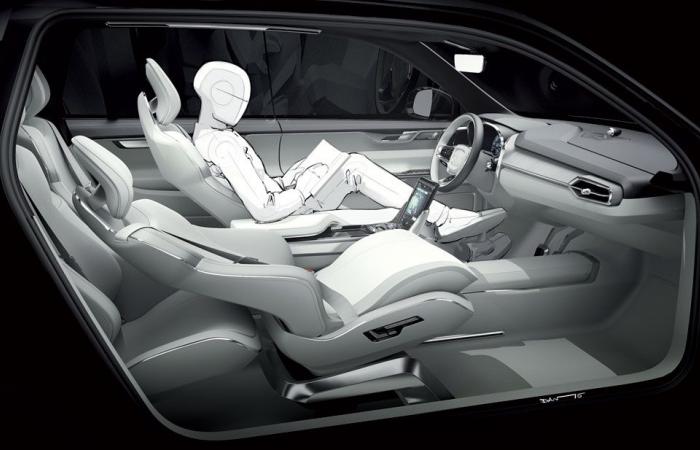Electric car news
In the constantly evolving world of automobiles, the race for self-driving cars is in full swing. While some manufacturers like Tesla are aggressively promoting their self-driving systems, others are taking a more cautious approach. This is particularly the case for Volvo, the Swedish manufacturer renowned for its top priority on safety, which calls into question the current viability of these technologies in the real world.
Volvo's position on autonomous driving
Claudia Zarra, head of safety at Volvo, recently expressed the brand's concerns about potential risks of self-driving cars. According to her, the safety of these vehicles strongly depends on the surrounding conditions. “We need a perfect environment for them to meet our standards,” she said, referring to the crucial importance of adequate road infrastructure, including clear road markings, precise signage and good general condition of the roads.
Volvo's position is clear: the brand's autonomous car will not be marketed until it is “100% safe”. This statement contrasts sharply with the approach of certain competitors who seem more eager to bring their technology to market, sometimes to the detriment of security.
The evolution of Volvo's strategy
Interestingly, Volvo hasn't always had this position. In 2018, the brand unveiled an autonomous car concept called 360c, with a speech that then resembled that of Tesla. The stated objective was to compete with public transport. However, Volvo never promised a production version of this concept.
Today, Volvo's strategy has evolved. Rather than rushing towards a fully autonomous car, the brand prefers to gradually integrate autonomous driving technologies into its new models. The EX90, the brand's latest electric SUV, is a perfect example. This vehicle promises to offer autonomous driving of level 3thanks to a LiDAR sensor installed on the roof.
Volvo's caution highlights the many challenges facing the auto industry in developing safe and reliable autonomous vehicles. Here are some of the main obstacles:
- The reliability of detection and decision-making systems in real conditions
- The ability to handle unforeseen situations or extreme weather conditions
- Ethical issues related to decision-making in the event of an unavoidable accident
- The need for suitable road infrastructure
- Regulatory and legal challenges
These challenges highlight the complexity of developing truly autonomous cars and partly explain Volvo's cautious stance.

The importance of safety in automotive innovation
Volvo's stance on autonomous driving reflects the brand's historic commitment to safety. Since the invention of the three-point seat belt in 1959, Volvo has always put safety at the heart of its brand identity. This cautious approach to autonomous driving therefore fits perfectly with the company's philosophy.
However, this doesn't mean that Volvo completely rejects the idea of autonomous driving. On the contrary, the brand is investing massively in these technologies, but with a progressive and measured approach. The objective is to integrate these innovations responsibly, ensuring that they provide real added value in terms of safety and comfort for users.
The future of autonomous driving at Volvo
Although Volvo is taking a cautious approach, the brand is not standing still in the autonomous driving space. The development of the EX90 with its capabilities level 3 autonomous driving shows that Volvo continues to innovate in this area.
This level of autonomy allows the vehicle to take control in certain conditions, such as on the highway, but still requires the driver to be ready to take back control if necessary. This is an important step towards greater autonomy, while maintaining a high level of security.
Volvo is also working on other safety aspects related to autonomous driving. For example, the brand is developing advanced driver fatigue detection and distraction alert systems. These complementary technologies aim to strengthen the overall safety of the vehicle, whether in autonomous mode or not.
Volvo's approach to autonomous driving reflects a long-term vision for the automotive industry. Rather than rushing to be first to market, Volvo chooses to take the time necessary to develop truly safe and reliable technologies. This strategy could pay off in the long term, boosting consumer confidence in autonomous vehicles and establishing Volvo as a leader in automotive safety in the autonomy era.
In a world where technology is evolving rapidly, Volvo's position reminds us of the importance of safety and responsibility in innovation. As we move toward a future where self-driving cars could become the norm, it's reassuring to see manufacturers like Volvo maintaining a balance between innovation and caution. This approach could well define the way forward for the entire automotive industry in the years to come.
Written by Albert Lecoq
Specialist in electric car buying guides, I am passionate about new technologies and am a strong supporter of the adoption of electric technology and sustainable mobility.
React to the article








